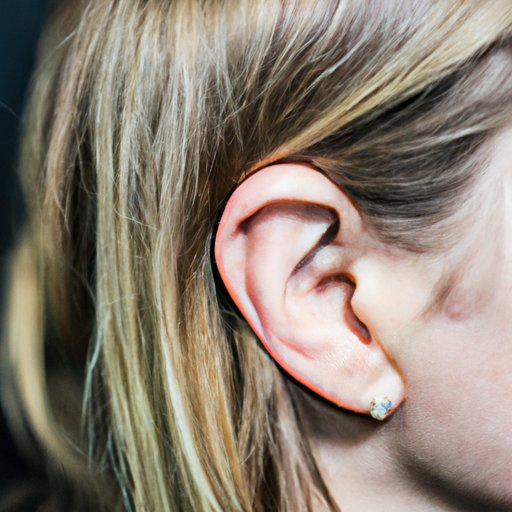
Introduction
Do you hear a pulsating sound in your ear that seems to beat in time with your own heartbeat? If so, you may be experiencing pulsatile tinnitus, a condition that can significantly impact your quality of life. Pulsatile tinnitus is often caused by underlying health conditions such as hypertension, earwax build-up, or vascular abnormalities. In this article, we’ll discuss the causes of pulsatile tinnitus, the ways to alleviate its symptoms, and the available treatments to help you stop hearing your heartbeat in your ear.
Understanding Pulsatile Tinnitus
Pulsatile tinnitus is a type of tinnitus that is characterized by hearing a rhythmic pulsing or whooshing sound in the ear, which is often in time with the heartbeat. Unlike regular tinnitus, which is a constant ringing or buzzing sound, pulsatile tinnitus is often caused by underlying medical conditions and can be heard by the doctor using a stethoscope. Common causes of pulsatile tinnitus include hypertension, earwax build-up, and vascular abnormalities.
With pulsatile tinnitus, even ordinary activities that raise blood pressure like physical exertion or bending over can increase the perceived sound. Pulsatile tinnitus can be quite distressing, frustrating, and affects quality of life by interfering with concentration and sleep.
Non-Medical Treatments for Pulsatile Tinnitus
There are several non-medical treatments you can try to alleviate the symptoms of pulsatile tinnitus, such as relaxation and stress reduction techniques, white noise machines, and limiting caffeine and stimulant consumption. Some natural remedies can also help reduce symptoms, including dietary changes, exercise, and taking herbal supplements like gingko and magnesium to improve cardiovascular health. However, it is important to note that these remedies aren’t scientifically proven.
You should also strive to maintain a healthy lifestyle by exercising regularly, maintaining a balanced diet, staying hydrated, getting enough restful sleep, and avoiding exposure to loud noise. Additionally, incorporating stress-reducing activities like yoga, meditation, and deep breathing into your daily routine can help alleviate the symptoms of pulsatile tinnitus.
Medical Treatments for Pulsatile Tinnitus
If non-medical treatments fail to alleviate the symptoms, there are many medical treatment options available. Depending on the cause of the pulsatile tinnitus, over-the-counter and prescription medications like diuretics, anti-anxiety, or anti-depressants can help. Furthermore, surgery can often help treat underlying conditions, such as vascular abnormalities or middle ear problems that cause pulsatile tinnitus. Another option is the use of noise-canceling devices, which can help minimize perception of the sound associated with pulsatile tinnitus. These devices work by playing external, soothing sounds like music, rain, and white noise that can effectively mask the pulsating sound.
It is essential to consult a medical professional about medical treatment options for pulsatile tinnitus. Each treatment option has its advantages, risks, side effects, and costs, so it is crucial to discuss with your doctor which option best suits your lifestyle, budget, and specific medical needs.
Personal Stories of People Experiencing Pulsatile Tinnitus
Hearing other people’s experiences can be comforting and reassuring when you are going through something similar. Many people who have pulsatile tinnitus have shared their experiences online, from the initial onset of symptoms to their journey to seek treatment. It’s important to remember that everyone experiences tinnitus differently, and thus, there is no one-size-fits-all treatment plan.
Advocacy organizations such as the American Tinnitus Association have many informative resources available. And most importantly, sharing your own experience particularly with a doctor is crucial in getting the right treatment and improving symptoms.
Conclusion
Living with pulsatile tinnitus can be overwhelming and affect your quality of life. Seeking professional medical help and awareness of non-medical treatments and coping methods are crucial to alleviate symptoms. Remember to incorporate healthy lifestyle habits into your daily routine, consider the available medical treatment options, and seek support and inspiration from the experiences of others.
Don’t resign to living with a pounding heartbeat in your ear. Don’t let it hold you back from living your life fully. There’s help available, and it’s okay to ask for it.




